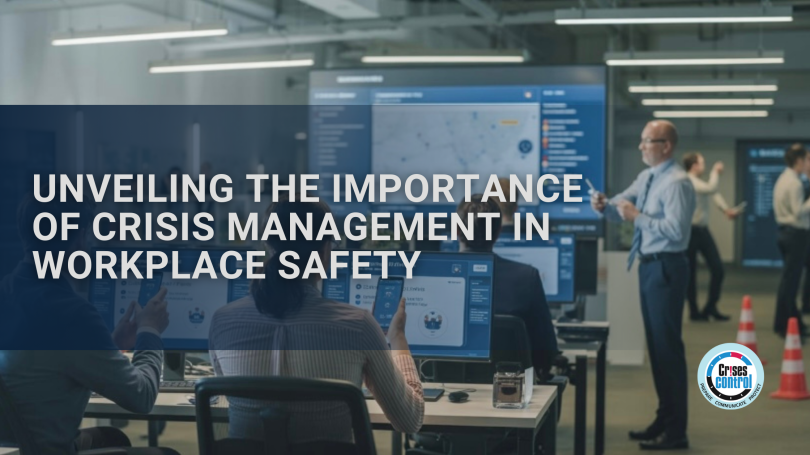Workplace safety is a cornerstone of any successful organisation, yet the reality is that emergencies are unpredictable and inevitable. Whether it’s a natural disaster, a cyber-attack, or a medical emergency, these crises pose a significant threat to the well-being of employees and the continuity of business operations. In the face of such uncertainty, businesses often find themselves grappling with two crucial questions: How do we respond effectively, and how can we minimise the impact on our workforce and operations?
The answer lies in the meticulous art of crisis management, a well-structured approach that empowers organisations to anticipate, prepare for, and ultimately navigate through crises with resilience and efficacy.
The Crucial Components of Crisis Management
Swift and Accurate Communication
When crisis strikes, every moment wasted on communication can lead to dire consequences. Effective crisis management relies on rapid and precise dissemination of information to the right people. This involves not only alerting employees about the situation but also providing clear instructions and updates as the crisis unfolds.
Mass Notification Systems
A cornerstone of crisis management, mass notification systems ensure that critical messages reach every employee, regardless of their location. These systems are designed to overcome communication barriers and deliver messages through various channels, such as mobile apps, SMS, email, and even voice calls. This comprehensive approach guarantees that employees receive vital information promptly, reducing response times and enhancing safety.
Incident Response Software
At the heart of crisis management lies incident response software, a powerful tool that orchestrates every aspect of crisis resolution. This software empowers safety managers with real-time insights, enabling them to coordinate response efforts, monitor the situation, and track the well-being of employees. With features like automated workflows and task assignment, incident response software streamlines crisis management, ensuring that nothing falls through the cracks.
Preparedness and Training
Crisis management extends beyond technology; it’s also about people and processes. Effective preparedness includes regular training, simulation exercises, and clearly defined roles and responsibilities. Employees need to know how to react when crisis strikes, and safety teams must be well-versed in using incident response software and mass notification systems to their full potential.
The Imperative of Workplace Safety
Prioritising workplace safety isn’t just a regulatory checkbox; it’s an ethical and strategic imperative for businesses. Here’s why:
Protecting Your Employees
Your employees are your organisation’s most valuable assets. Ensuring their safety isn’t just a moral obligation; it’s an investment in the sustainability and success of your business. A workplace that prioritises safety nurtures a loyal and motivated workforce, leading to increased productivity and reduced turnover rates.
Reputation Management
In an age of instant information sharing, a single workplace incident can rapidly escalate into a public relations nightmare. Focusing on workplace safety not only minimises the risk of such incidents but also demonstrates your commitment to the well-being of your employees and the community. This proactive approach can enhance your brand’s reputation, making it more attractive to customers, partners, and top talent.
Legal and Financial Ramifications
Non-compliance with workplace safety regulations can lead to costly legal battles, fines, and damage claims. In some cases, it might even result in business closure. Prioritising safety, on the other hand, ensures compliance, protects your financial interests, and safeguards your business from legal trouble.
Operational Continuity
Workplace accidents and emergencies can disrupt business operations, leading to downtime and financial losses. A robust crisis management strategy, backed by mass notification systems and incident response software, minimises these disruptions, enabling your business to weather the storm and maintain operational continuity.
Global Benchmarking
In today’s interconnected world, businesses often operate across borders. Workplace safety practices are closely scrutinised, and adhering to international safety standards not only ensures compliance but also allows your business to compete on a global stage.
Conclusion
Workplace safety is a multifaceted investment that yields returns in the form of employee well-being, enhanced reputation, legal protection, operational stability, and global competitiveness. Embracing crisis management as a core component of your business strategy is not just prudent; it’s an imperative for long-term success and resilience in an unpredictable world.
Ready to take a proactive approach to workplace safety? Crises Control is here to support your journey. Request a live demo today to experience how our cutting-edge solutions can empower your organisation. Your journey to a safer, more secure workplace begins here, with Crises Control.







